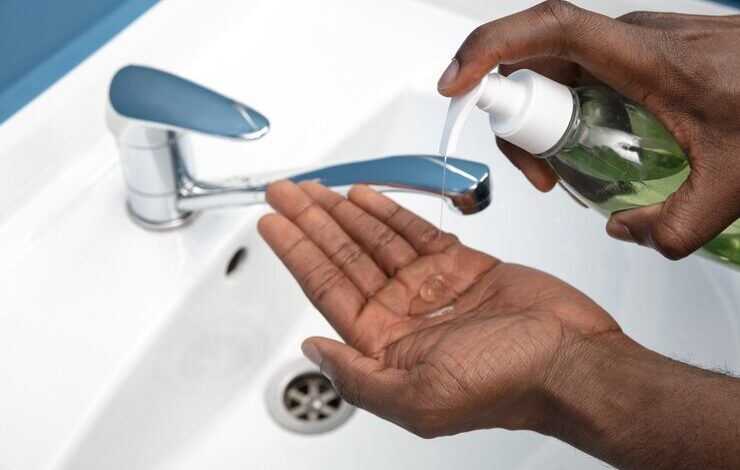Promoting a Culture of Hand Washing: Addressing the Neglected Tippy Tap Challenge

Frequent hand washing remains a cornerstone of public health, especially in curbing the spread of infectious diseases. However, promoting and sustaining this culture has proven challenging in many districts. A glaring example of this is the state of tippy taps—once essential hygiene tools—now often neglected, broken, or removed altogether.
The situation is particularly evident in urban areas and workplaces, where tippy taps were initially installed to encourage proper hand hygiene. Unfortunately, many have become dysfunctional or abandoned, reducing their impact and leaving the public with fewer hygiene options.
The Neglect of Tippy Taps
Observations reveal that in several towns and offices, these devices, which once symbolized a community’s commitment to hygiene, have fallen into disuse. Some are broken and unusable, while others have been removed entirely. This neglect not only undermines efforts to promote hand washing but also signals a deeper issue: the lack of sustained commitment to maintaining public health interventions.
The issue extends beyond tippy taps. Many public spaces that serve numerous clients daily no longer provide hand sanitizers or other alternatives for hygiene. This neglect jeopardizes the health of both employees and visitors, particularly in high-traffic areas like markets, health facilities, and government offices.
Why Sustaining Hygiene Practices Matters
The importance of frequent hand washing cannot be overstated. It reduces the transmission of germs, prevents outbreaks of diseases like cholera, and builds a healthier community. Yet, the decline in the use and maintenance of tippy taps indicates that while initial efforts may have been successful, long-term adherence remains a significant challenge.
Without consistent reinforcement, infrastructure like tippy taps can quickly become “white elephants”—visible but nonfunctional reminders of once-active campaigns. To reverse this trend, there is a need to rethink strategies for promoting and sustaining hygiene practices.
Recommendations for Revitalizing Hygiene Practices
- Regular Maintenance and Monitoring: Local agencies must implement a maintenance schedule for tippy taps and other hygiene facilities. Regular checks can prevent minor issues from escalating into complete neglect.
- Community Ownership: Encouraging communities to take ownership of public hygiene tools can ensure their longevity. This could involve assigning specific groups or individuals to oversee maintenance.
- Behavior Change Campaigns: Awareness campaigns emphasizing the importance of hand washing can reignite public interest and compliance. Demonstrations and training sessions in schools, offices, and public spaces can foster a lasting culture of hygiene.
- Policy Enforcement: Authorities should mandate that all public spaces serving large populations provide functional handwashing facilities, including soap and water or hand sanitizers. Regular inspections could ensure compliance.
- Private Sector Partnerships: Partnering with businesses to fund and maintain handwashing stations can alleviate financial burdens on local governments and promote corporate social responsibility.
A Call to Action
The neglect of tippy taps and hygiene facilities represents more than just a logistical failure—it reflects the challenge of sustaining behavioral change over time. Rebuilding a culture of frequent hand washing requires commitment from all stakeholders, including governments, businesses, and community members.
By prioritizing proper hygiene practices, districts can safeguard public health and reaffirm their dedication to the well-being of all citizens. Addressing the tippy tap challenge is not just a matter of fixing broken infrastructure—it is about restoring trust in public health initiatives and building a healthier future.
Join 'Lesotho News' WhatsApp Channel
Get breaking Lesotho news — delivered directly to your WhatsApp.
CLICK HERE TO JOIN



